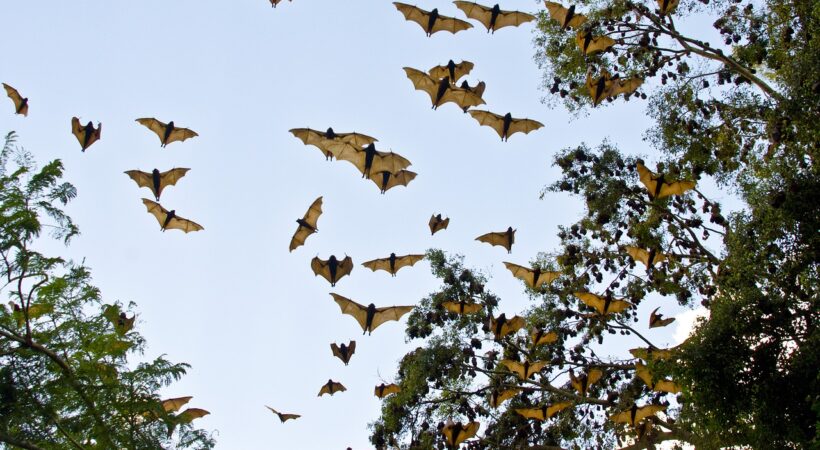Doctor warns against tracing and killing fruit bat which causes Nipah virus infection

As Kerala continues to be reeling under the Nipha Virus fear, the doctors have come up with advises against unhealthy practices followed by the public which include tracing and killing the fruit bat supposed to be the carriers of the virus.
Doctors have been advising the public against tracing the fruit bat which are the host reservoir of Nipah virus (NiV).
It is in the wake of reports that public were trying to trace and catch the bats that the doctors came up with such warnings.
Dr.Sulphi Noohu, State President Elect, IMA KERALA, in his recent Facebook post warns the public against tracing and killing the bats that live in the suburbs. Doctor called the bats as ” reservoir of many dangerous viruses” like Nipha and if public with inadequate experience try to trace and kill the bats will end up stirring up such virus and it would be fatal for the society.
Doctor also says that the Nipha disease will fade away on its own and no attempt is needed from the public side other than following the guidelines provided by the experts.
It was on Sunday (September 5) that a 12-year-old boy died in a private hospital in Kozhikode after contracting Nipah Virus. After that many had claimed to have the symptoms of Nipha sought treatment in Hospitals.
Fortunately, no body has tested positive yet. A team of experts sent by the central government is supporting the state in public health measures.
A Nipah virus outbreak in 2018 had claimed 17 lives in the state.
What is Nipah virus?
Nipah virus (NiV) is a ‘zoonotic’ virus, that is, it is contracted to human beings from animals. The virus can also be spread through contaminated food, or directly between people.
The pathogen that causes NiV encephalitis is an RNA virus of the family Paramyxoviridae, genus Henipavirus, and which is closely related to the Hendra virus (HeV), which was isolated in Australia in 1994.
The animal host reservoir for both HeV and NiV is the fruit bat (genus Pteropus), which is commonly known as the ‘flying fox’. Infected fruit bats can spread the disease to other animals as well, such as pigs — and also dogs, cats, goats, horses and sheep.
Human beings can get infected if they come in close contact with the infected animal — bats or other animals such as pigs — or its body fluids such as saliva or urine. The initial jump of the virus from animal to human is known as a ‘spillover’ event in an outbreak.
Once the infection has moved to humans, person-to-person spread of NiV can occur.
As it the fruit bat that spread the disease to other animals, the team of experts have examined its
presence in the areas of Kozhikode and Malappuram where the first Nipha death was reported. However,















